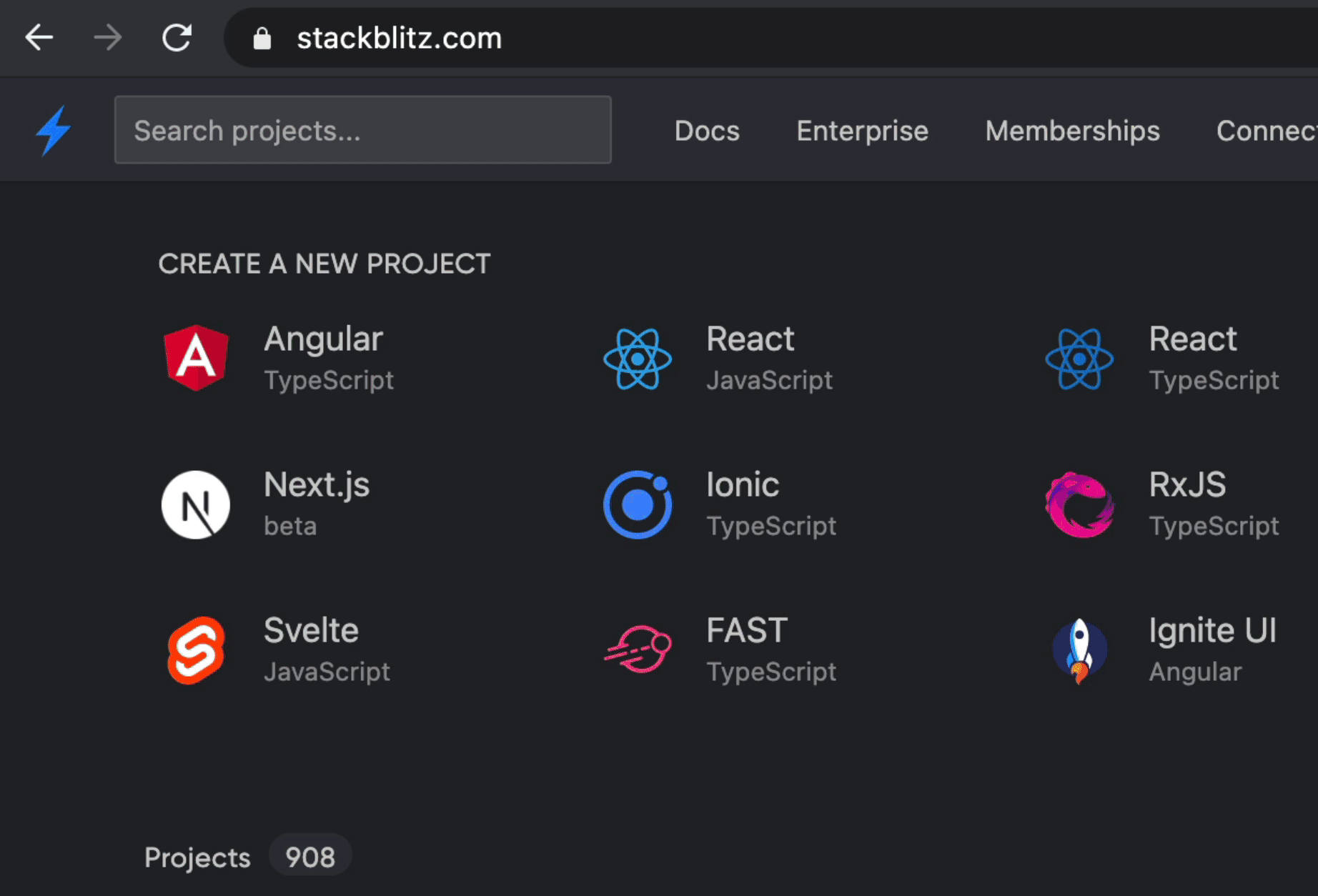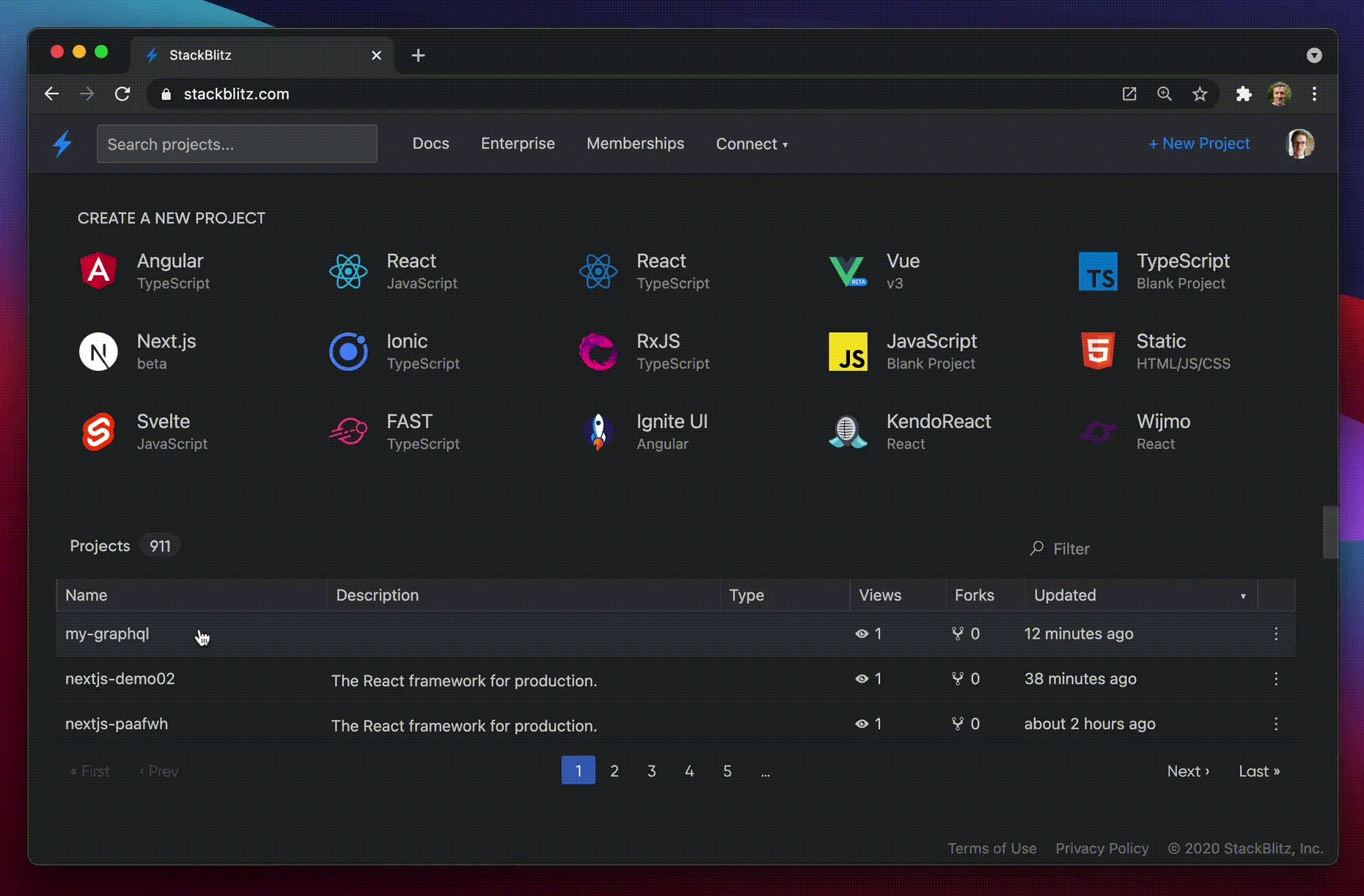StackBlitz, a developer-focused startup that uses WebAssembly and WebContainers to give you a full development environment in your browser, today announced that it has raised a $7.9 million seed funding round led by Greylock with participation from GV, GitHub co-founder Tom Preston-Werner, atSpoke co-founder Jay Srinivasan and Appurify co-founder Pratyus Patnaik.
At its core, StackBlitz gives you a full development environment in the browser. The service currently supports JaveScript-adjacent frameworks like Next.js, Nuxt, Node.js, React and Angular. The code editor is powered by a pared-down version of Visual Studio Code, but it’ll soon run a full extensible version of Microsoft’s open-source code editor in the browser that will remove the limitations of today’s StackBlitz editor. Developers can get started with a blank project within seconds, connect to their code repositories in GitHub to work on existing projects or even just work on their local files.
Stackblitz was co-founded by Eric Simons (CEO) and Albert Pai (CTO). If Simons’ name sounds familiar, he’s the guy who, when he was 19, squatted at AOL’s headquarters while he and Pai were working on what would become Thinkster, their first startup. Thinkster offers online programming courses and tutorials with a focus on full-stack development. In the process, they realized how hard it has become to set up a development environment when you want to teach somebody how to program. “It’s super unreliable,” said Simons. “It’s a total pain. It’s a nightmare. And it’s like: how has this not been solved?”
Unsurprisingly, that’s exactly the problem StackBlitz tries to solve. “[At Thinkster] we were teaching the bleeding edge of what browsers could do,” he explained. “And we had this realization that it should theoretically be possible to actually run a dev environment in a browser tab — kind of like running an operating system in a browser tab so you don’t have to install stuff and you don’t have to spin up a server.”
Simons noted that the team spent three years building the WebContainer technology which allows you to run this WebAssembly-based system in a browser tab and boot it within milliseconds. “It also means we can give this away for free, which is spiritually important to Albert and I, considering our origins,” Simons explained. “But also, we have 2 million developers a month now using Stack Blitz and our AWS bill is a couple of hundred bucks because all the compute is being offloaded right to the edge.”
The StackBlitz team also argues that using its service enhances security because it’s very hard for code to break out of the browser sandbox. In part, Simons attributes the service’s success in the enterprise to these inherent security features.
While StackBlitz should make for a nice environment to teach programming, it’s important to note that the company isn’t directly going after this market. So far that seems to be working out. Simons says that during the beta period, StackBlitz saw developers from over 2,000 companies on its platform and that he is seeing strong interest from Fortune 500 enterprises. The company’s enterprise revenue grew 10x in 2021 and quadrupled its headcount to 20 people.
As for monetizing the service, StackBlitz is following the GitHub playbook, with a free service that only allows for public projects and syncing with public GitHub repos, and paid tires starting at $9/month that allow for private projects as well.




